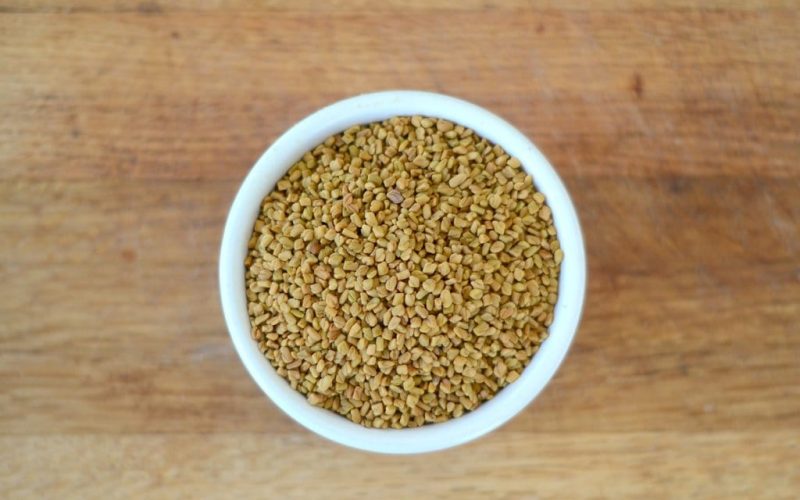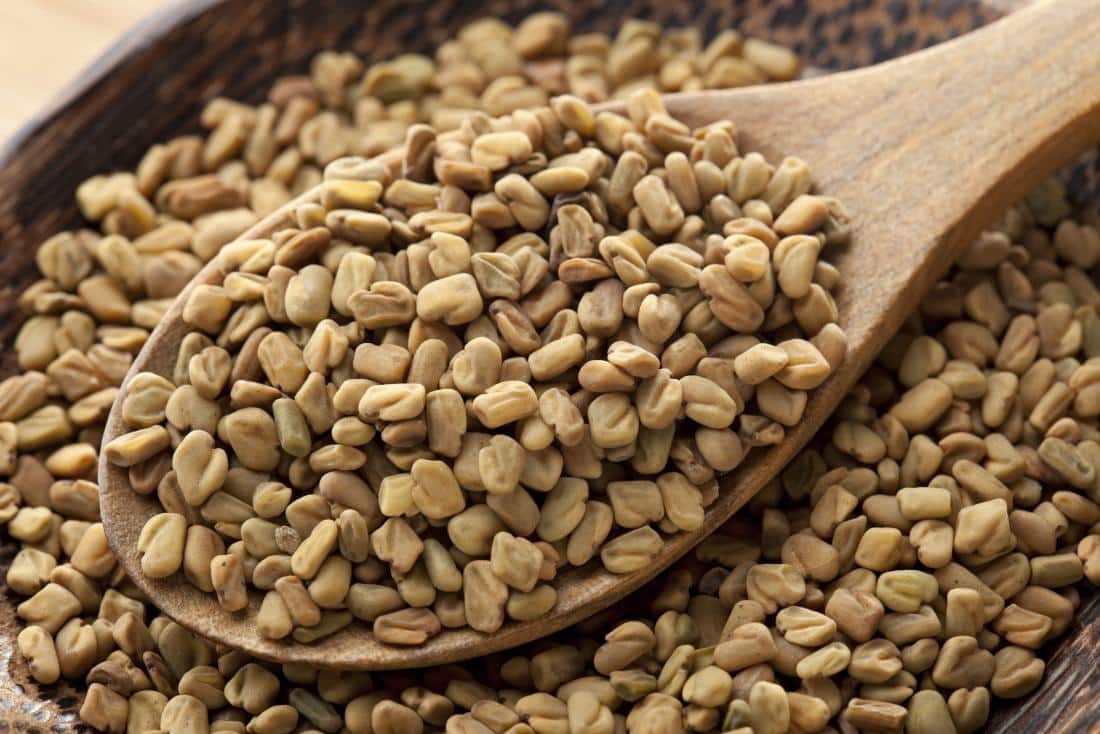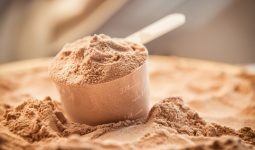In most places around the globe, fenugreek is also referred to as methi and is scientifically known as Trigonella foenumgraecum.
Furthermore, it belongs to the bean family plus it originates from the Near and Middle East with its use widespread in the Indian subcontinent.
This plant stands at about two to three feet tall and features small, rounded green leaves as well as pods and flowers which contain the fenugreek seeds which are golden brown.
This seed has been used for thousands of years as Chinese and alternative medicine in the treatment of skin conditions as well as lots of other illnesses.
In recent times, the use of fenugreek has become more popular as a thickening agent and as a household spice. Furthermore, it is used in products like shampoo and soap.
Finally, its powder and seeds also are used in most Asian and Indian recipes thanks to their somewhat sweet, nutty taste as well as their nutritional profile.
Health Benefits of Fenugreek Seed
1. Reduces Cholesterol Levels
Research done by the British Journal of Nutation; intake of fenugreek assists in the reduction of the cholesterol levels.
Usually, it does this by considerably lowering the levels of bad cholesterol (LDL). It is useful in the prevention of numerous conditions such as heart attacks, atherosclerosis, and strokes.
Additionally, being a rich fiber source is essential as this scrapes the excess cholesterol from the blood vessels as well as arteries of your body.
Subsequently, the reduced cholesterol level in your bloodstream leads to a reduced possibility of blood clots forming.
2. Promotes Lactation
Late breastfeeding might escalate the risk of neonatal mortality according to the Pediatrics journal. Usually, this occurs when a mother cannot produce a sufficient amount of breast milk.
In India, a fenugreek prescription is given to nursing mothers by the traditional Ayurvedic doctors with its benefit accredited due to the existence of diosgenin.
Therefore, new mothers should incorporate fenugreek tea into their diet to assist them in increasing lactation, as stated by the Journal of Alternative and Complementary Medicine, New York.
Usually, the amount of milk that the breasts produce can be increased by taking fenugreek extract capsules. Moreover, the presence of vitamin and magnesium further aid in improving the quality of milk, thereby ensuring the infant remains healthy.
A single tablet is about 600 milligrams, and either two or three need to be taken in different periods of the day.
3. Reduce Menopausal Symptoms
Estrogenic isoflavones and diosgenin are present in fenugreek, and these chemicals are closely identical to estrogen, the female sex hormone. Typically, the loss of estrogen is what leads to menopausal symptoms.
Thus, consuming fenugreek will assist in minimizing menopausal symptoms such as cramps, depression, mood swings, as well as abnormal hunger pangs.
Additionally, it helps in the monitoring of various hormone, therefore, ensuring lots of other bodily processes are performing as expected.
4. Prevents Colon Cancer
Fenugreek seeds have anti-carcinogenic, and present in this herb is the steroid diosgenin which has explicitly been connected to the prevention of cancer.
Present also in fenugreek are non-starch polysaccharides such as mucilage, saponins, tannin, pectin, hemicellulose and reduced levels of cholesterol.
Usually, all these obstruct the reabsorption of bile salts by the colon. It is because it can attach to these toxins, thereby safeguard the mucous membranes of the colon, and this can subsequently lower colorectal cancer as well as other conditions which can affect the colon negatively.
Likewise, other studies show that fenugreek displays anticancer effects and therefore, may help in programmed cell death or stimulation apoptosis.
5. Kidney Problems
According to traditional Chinese medicine, using fenugreek is ideal if you are suffering from any kidney condition.
An animal study conducted showed that fenugreek might assist in reducing the amount of kidney calcification as well as minimize the risk of kidney stones developing.
6. Controls Diabetes
This herb helps you lessen type I and type II diabetes. A pilot study done in 2005 proposes that adding fenugreek seeds to a diabetic’s diet aids in reducing blood glucose level.
This herb reduces the sugar absorption rate into the bloodstream because it contains natural fiber galactomannan. Moreover, present in fenugreek is 4-hydroxyisoleucine, an amino acid which controls the rate at which insulin is released.
Consequently, this assists in the prevention of peaks and plunges of blood sugar levels in people with diabetes. Usually, the amount recommended for the daily control of the blood sugar is 15 to 20 grams of fenugreek.
7. Alleviates Constipation
Because of its high fiber content, fenugreek increases the bulk of stool. It is especially useful in the treatment of diarrhoea, constipation as well as lessening minor issues of indigestion.
8. Pain Relief
In the traditional systems of medicine, fenugreek often was employed for pain relief. According to researchers, the alkaloid compounds present in this herb are what assist in blocking the sensory receptors, which typically permit the brain to identify pain.
A study carried out in 2014 on 51 women who experienced painful periods took fenugreek seed powder capsules three times during the day in the first three days they experienced their periods for two consecutive months.
Consequently, these women suffered from less between the months as well as shorter pain durations.
9. Suppresses Appetite
Research carried out by the Department of Food Science and Nutrition, University of Minnesota, the USA on fenugreek’s side effects on appetite.
Their findings showed that galactomannan, a natural soluble fiber present in fenugreek, assist in curbing your appetite as it makes you feel full. Subsequently, this causes a reduction in your food intake.
Uses of Fenugreek Seed
There are many methods which you can use as well as consume fenugreek and this include;
- You can dry its leaves and use it as herbs
- Its seeds can be eaten complete and frequently are utilized as toppings in particular soups or dishes
- Fenugreek seeds are used mainly as spices and are often sprinkled above most Asian dishes
- Its powder can be used in making healthy, revitalizing tea
- Its plant can be utilized like a vegetable such as microgreens and sprouts
- Fenugreek seeds in its powder form may be used as a flavoring agent in soups, curry pastes, and stews.
What do you think? let us know in the comment section below.








